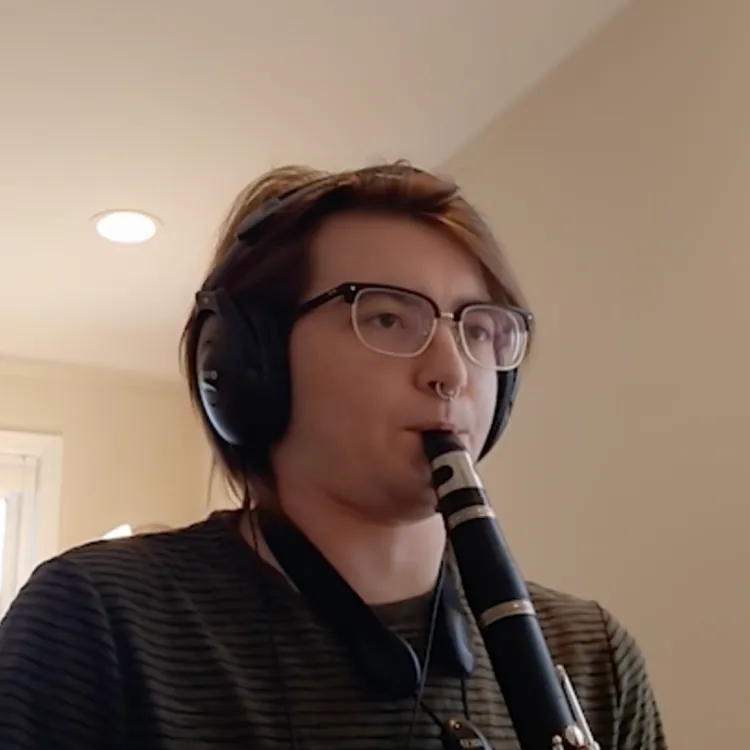Cameron Johnson '21

Cameron Johnson '21
Throughout his musical endeavors––both before and during his time at Swarthmore––Cameron Johnson ’21 has become increasingly well-versed in a wide range of instruments and the historical context of music. As he prepares to graduate from Swarthmore with a minor in Music, he reflects on the creativity, opportunities, and fond memories that have shaped his experience.
Cameron had always had a natural inclination towards music, which made it fairly easy to pick up a minor in the department. He explains, “Freshman year, I wasn’t thinking of minoring at first, but I’ve been involved in multiple different music ensembles––so by the end of the year it sort of felt natural to pursue a music minor... Professor Blasina had gotten me very into early music and I think he’s part of the reason I ended up choosing the music minor program.”
As a serious clarinet-player in high school, Cameron was involved in both school performances and community youth orchestra. Soon, his interest began to expand to other musical instruments, including the trumpet. “One interesting thing [is that] I taught myself [the] trumpet in high school, because my school’s jazz band literally didn’t have trumpet players. But, they had a spare school trumpet that they lent me.” Upon coming to Swarthmore, Cameron has also dedicated time to piano and singing, as well.
Cameron’s work in the music department is also largely defined by his robust experiences in performance ensembles. He is a member of Critical Mass, Orchestra, and Wind Ensemble––all of which he has been involved in every year of his Swarthmore career. The exposure to a wide variety of music to hear, learn, and perform is something that he has greatly valued over the years. “I like playing a lot of the [music] we get in Wind Ensemble, and I always really liked orchestral repertoire––and then Critical Mass is a completely new and different experience.” Critical Mass, in particular, has sparked Cameron’s deep interest in early music. Combined with his interest in early 20th century music and industrial, experimental music from the 70s and 80s, Cameron’s music taste is as expansive as it is impressive
Reminiscing about his Swarthmore music-making experiences, Cameron recalls his appreciation for the music department’s approach to early music: “[Swarthmore’s music department] sort of shaped how I approach history in general. [It’s] a combination of needing to understand historical contexts and where a certain piece comes from, in tandem with a sense of creativity and interpretation that I think applies to understanding and interpreting any historical text.”
After Cameron graduates, he plans to maintain music as part of his life, and looks back at his musical experiences at Swarthmore with gratitude.
Favorite Music course at Swarthmore
Music 40 (Musicianship)
Favorite Music-making experience at Swarthmore
Composing a minuet at the end of Music 12 (Music Theory)
What you'll miss most about Swarthmore
All of the music-making opportunities, especially the student-directed ones
Best performance(s) you ever saw?
A Swarthmore student’s senior recital containing an original operetta, based on the short story, “The Yellow Wallpaper”
What sound or noise do you love?
8-bit sounds from early computers and video game consoles
What sound or noise do you hate?
Chewing
What's the last song you played on your phone/mp3 player?
“Tank” by the Seatbelts



